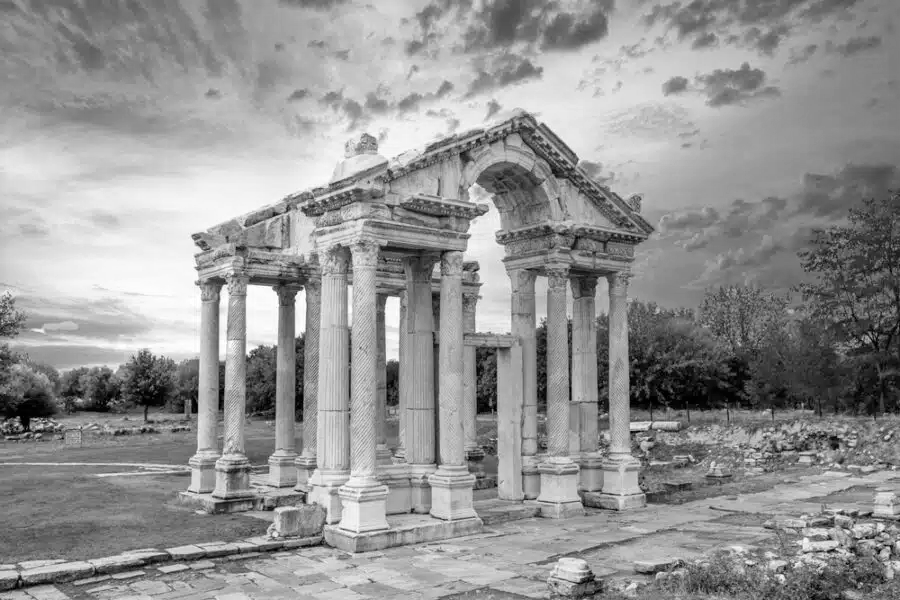Addressing the Challenges to Cultural Heritage in Turkey and Syria after the February 6th Earthquake
By Dr. Evangelos Kyriakidis
N.B. The following remarks were delivered during the Aliph Forum 2023 a few short weeks after the deadly February earthquakes that affected Turkey and Syria
Dealing with the challenges posed to cultural heritage in Turkey and Syria following the devastating earthquake of February 6th is a complex issue that requires a multifaceted approach. As the global heritage community responds to this catastrophe, it is crucial to consider the longstanding difficulties faced by the affected regions in Southeastern Turkey and Syria, including longstanding humanitarian and political crises affecting these countries. The earthquake has further exacerbated an already dire situation.
To effectively address this, it is essential to distinguish between regions experiencing an ongoing humanitarian disaster and those that have endured significant damage but are not facing immediate threats to human life. Immediate action should be taken to protect heritage in the latter regions, while rescue teams should be left unimpeded in their efforts to save lives in the former.
The circumstances in Syria differ significantly from those in Turkey. Prior to the earthquake, there were ongoing cultural heritage preservation and protection projects in Turkey, some of which HERITΛGE was fortunate to be involved with. One notable project, generously funded by the British Council’s cultural protection fund, focused on documenting cultural heritage in Antioch. The documentation from this project will prove invaluable in the aftermath of the disaster. Additionally, the project contributed to the development of skills in vernacular architecture, which will be vital for addressing the needs of local heritage.
HERITΛGE also participated in an Ambassadors’ Fund for Cultural Preservation project in Mardin. This city, with its well-preserved traditional stone, religious and vernacular architecture, and terraced urban layout, was fortunately spared the worst of the earthquake’s impact.
Other projects, albeit less comprehensive, documenting primarily local religious sites were underway in the region. Their findings will allow the heritage community to compare data before and after the earthquake, providing valuable insights into the extent of the damage.
Civil society in the affected area has also mobilized to address the situation. Although their numbers are limited, several groups are diligently working to document the earthquake’s impact on heritage and ensure that relevant issues are addressed. The Turkish government has also taken steps in this regard, organizing workshops to enhance the capacity of engineers who will assess the damage. Despite the incalculable loss off life, there are still people on the ground who will contribute to assessing the situation in several locations within the less severely affected areas.
Given the circumstances, it is likely that extensive collaboration will be necessary to deploy additional teams to evaluate the damage in these — i.e. the region less severely impacted by the earthquakes. This area will serve as a precedent for future interventions, mapping, and documentation efforts in the most heavily affected areas. Mapping the damage to heritage in the region will be a challenging, painstaking, and sorrowful task. However, it is an essential endeavor that must be undertaken.
* You can watch the Plenary and more from Aliph Forum 2023 here.
*Dr. Evangelos Kyriakidis is the Director of the Heritage Management Organizatio (HERITΛGE). He made these remarks during a plenary of the Aliph Forum 2023 in Abu Dhabi in early March 2023, a few weeks after the earthquake. Plenary 4 “Safeguarding cultural heritage in the aftermath of the earthquake of 6 February 2023” was chaired by Dr. Mounir Bouchenaki, ad interim Chair of the Scientific Committee, ALIPH.
Along with Dr. Kyriakidis, the speakers included:
* Mr. Luis Monréal, General Manager, Aga Khan Trust for Culture, Switzerland
* Dr. Maja Kominko, Scientific and Programs Director, ALIPH
* Dr. Sarkis Khoury, Director General of Antiquities, Lebanon
* Mr. Mehmet Balci, Co-founder, Fight for Humanity, Switzerland
* Ms. Krista Pikkat, Director, Culture and Emergency Entity, Culture Sector, UNESCO
* Mr. Yves Ubelmann, CEO, Iconem, France

